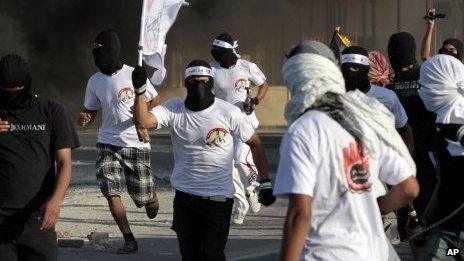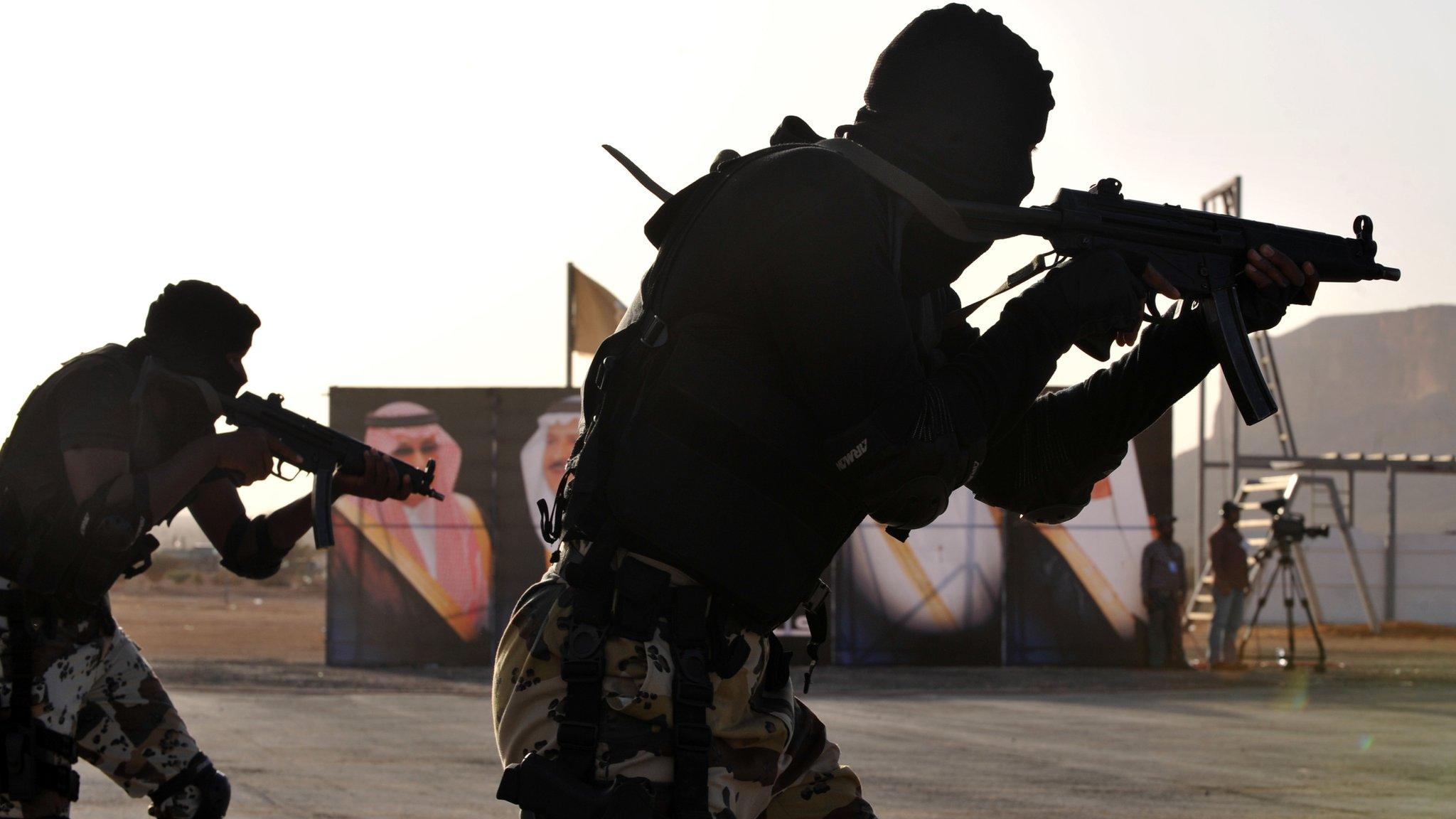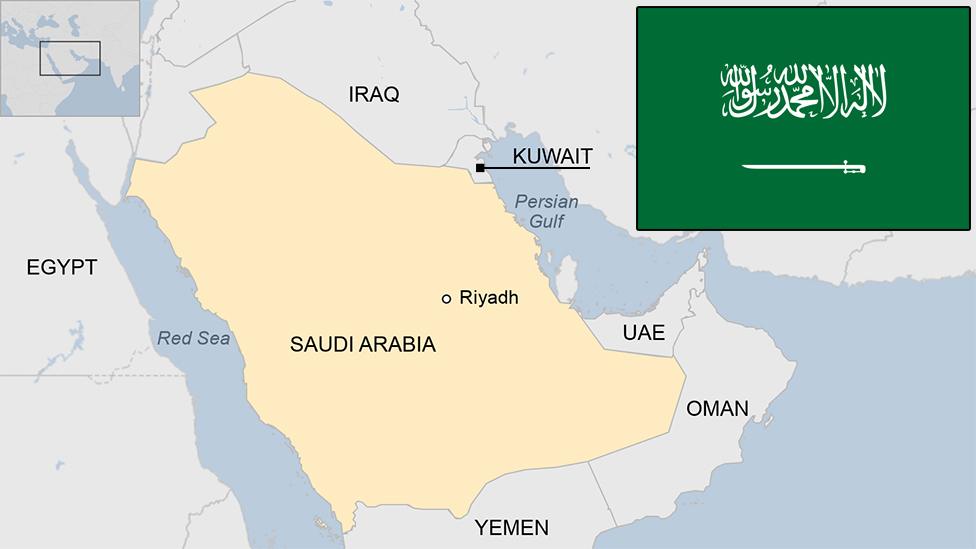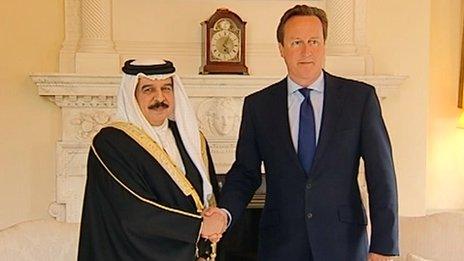UK struggles to balance ties with Gulf Arabs
- Published

Bahrain sees almost daily clashes between anti-government protesters and police
The UK Parliament's influential Foreign Affairs Committee (FAC) has announced a wide-ranging inquiry into Britain's foreign policy towards two key Gulf countries: Saudi Arabia and Bahrain.
The inquiry, which follows a recent FAC report on the Arab Spring, will look closely at how the UK balances its various interests in those countries in defence, trade, security, counter-terrorism and human rights.
Although announced this week with little fanfare, the inquiry goes to the heart of the government's dilemma: how to support democratic change in the Middle East without jeopardising vital bilateral defence and trading partnerships worth billions of pounds.
The two countries have a special place on the Foreign Office's global map.
Saudi Arabia is both the birthplace of Islam and home to its holiest shrines. It is the world's biggest oil producer and a major buyer of UK defence exports, including BAE Systems Typhoon jets.
It is also seen by some as a bulwark against Iran, as the two countries jostle for influence in the Middle East.
Bahrain, while geographically tiny by comparison, punches above its weight on the strategic map as it is home to the US Navy's 5th Fleet.
About 60 UK Ministry of Defence personnel are also based there at Coalition Maritime Forces HQ, and RAF flights transit through with VIPs en route to Afghanistan and beyond.
'Not doing enough'
But as the former colonial power in much of the Gulf, Britain is keen to be seen to be on the right side of history when it comes to the momentous changes now sweeping through the Arab world.
To that end, part of the focus of this parliamentary inquiry will be on "how the UK can encourage democratic and liberalising reforms in Saudi Arabia and Bahrain, including its power to effect improvements".
Lurking beneath the surface here is the ongoing criticism of both those countries' human rights records.
Amnesty International, in its 2012 report, accuses the Saudi authorities of "torture and grossly unfair trials" and criticises "cruel and degrading punishments, including flogging".
Bahrain - the only Gulf Arab state to be profoundly affected by the mass protests triggered by the 2011 Arab Spring - is still suffering civil disorder that sees nightly clashes between riot police and masked protesters in mainly Shia-populated villages.
Last year, an independent commission found the Bahraini government guilty of systematic abuse of prisoners, amongst other accusations, after which the king promised reforms.
Those reforms, say the opposition, do not go far enough, pointing to the fact that Bahrain still has an unelected prime minister who has been in office for 41 years - since the year Britain went decimal.
Whitehall officials say the new inquiry has been prompted in part by complaints from Bahrain's Shia opposition activists that the UK is not doing enough to help end alleged human rights abuses in Bahrain.
Pessimists' fear
But this week an organisation representing Bahrain's 600,000 expatriates - around half the population - accused the opposition of abuses of its own.
"Continuous illegal unsanctioned marches and demonstrations cause chaos that inevitably turns into violent attacks on members of our communities, their property and the security forces," says the Bahrain Federation of Expatriate Associations (BFEA).
It adds: "Our cars, homes, schools and places of worship are attacked with Molotov cocktails and defaced with vile graffiti. Our safety and security are under constant threat from gangs of thugs. These criminal activities must be stopped."
But even as the spectre of human rights abuses hovers over Bahrain, there are bigger concerns concentrating minds in Whitehall and Washington.
The talk in the Gulf these days is not so much about democratic change as the prospect of yet another conflict, this time between Israel and Iran, one which would drag in the US and inevitably impact on the six Gulf Arab states which all have defence agreements with the West.
Even this week a major multinational exercise is under way in the Arabian Sea to rehearse how to clear the Strait of Hormuz of sea mines, should that conflict ever materialise.
Pessimists fear that by the time the UK Parliamentary committee releases its findings next year the region could well have entered a new and dangerous phase.
- Published9 September 2012

- Published12 November 2018
- Published29 August 2023

- Published23 August 2012
